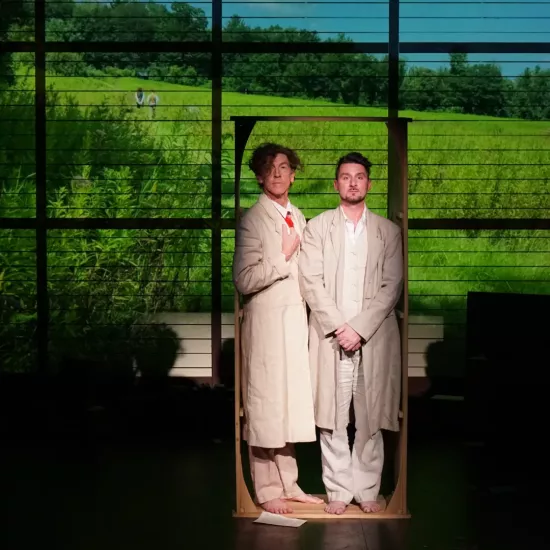Professor Terry Robinson on Studying the Past and Making Onion Pie

Terry F. Robinson is Associate Professor of English and Drama at the University of Toronto and the recipient of the 2024 Nineteenth-Century Studies Association (NCSA) Article Prize for “Deaf Education and the Rise of English Melodrama,” Essays in Romanticism 29.1 (April 2022): 1-31—an article that also won the 2023 James L. Clifford Prize from the American Society for Eighteenth-Century Studies (ASECS). Her work has appeared in Eighteenth-Century Studies, Romantic Circles, Studies in Romanticism, and Nineteenth-Century Literature, among others. She is coeditor of “Romanticism and Vision,” a special issue of the European Romantic Review 33, no. 4 (2022); and The Visual Life of Romantic Theater, 1780-1830 (2023); and her book Reading the Acting Body in the Romantic Age: Performance and Its Truth Effects, 1750–1830 is under contract with Oxford University Press. Robinson’s research interests include eighteenth- and nineteenth-century literature, drama and theater history, body and performance studies, and material and visual culture.
What is the importance of studying the nineteenth century? How does thinking about the past help us think about the twenty-first century?
This question—why study the nineteenth century today? or, more generally, why study the past?—comes up a lot, I think, because we live in a largely presentist society that prioritizes modern-day life as relevant and significant. But even if we might adopt a “that was then, this is now” perspective, it is also important to remember the idiom, “There is nothing new under the sun,” which is simply to say that the new is the old remade, and that life, art, and culture are outgrowths and permutations of what came before. Because humans have been wrestling with similar questions and conflicts, drives, and desires for ages, engaging with history can tell us a lot about the worlds we live in now and how we came to be who we are. This doesn’t mean that we always see ourselves in the past, which can sometimes appear strange, unfamiliar, and unrepresentative. But encountering differences between then and now, and confronting gaps in the historical record, can be just as illuminating as recognizing similarities and consistencies. Reading drama, poetry, and prose—from the nineteenth century or any century—is important because doing so provides a unique key to history, shedding light on how people perceived and expressed themselves, created art, generated and addressed problems, and structured the world around them. Considering how and why those perceptions, expressions, artforms, problems, and structures persist (or not) is essential to living an informed life today. The long nineteenth century, with its historical adjacency and “modern” concerns, can be particularly fruitful for such comparisons.
How does teaching about the nineteenth century prepare undergraduates for living and working in the twenty-first century?
I teach in a department where all our courses—on nineteenth-century literature and beyond—are geared toward providing students with the skills they need to flourish: critical thinking, clear and effective communication, and the ability to argue one’s position while maintaining sensitivity to different positions and approaches. These skills pave the way for future educational and career success and support students in becoming more informed, thoughtful, and empowered individuals, able to articulate their own ideas about the texts and narratives that shape everyday experience. Equally important is the fact that reading drama, poetry, and prose fires the imagination and provides fuel for life—for learning about other people, places, and ways of being; for the exploration of ethics and emotion; for pleasure in form and style (e.g., recognizing allusions, relishing satire); and for conversation and human connection.



